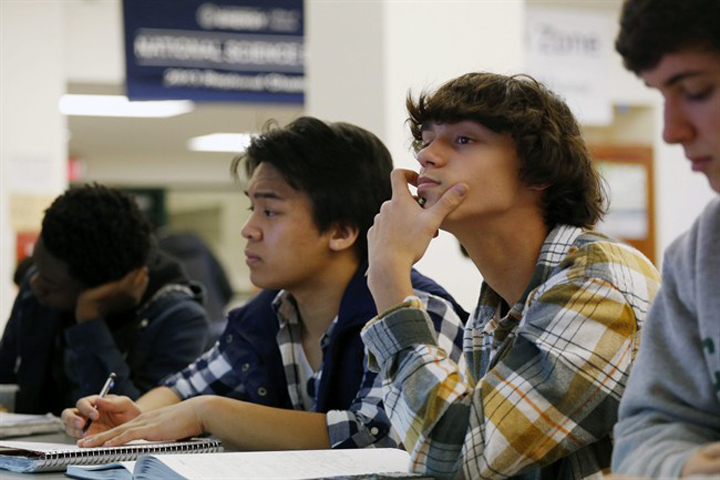Pushing first class to later in the morning could do wonders for chronically sleep deprived teens, according to a new study.

Teenagers often get a bad rap: they’re seen as “tired, irritable and uncooperative” because they choose to stay up too late, and lazy for not wanting to get up early, the study states. But teens don’t run on the same inner clocks as everyone else, and experience “a major biological shift in their sleep patterns” during puberty.
The findings were published in the Learning, Media and Technology journal and recently presented at the British Science Festival.
Researchers from Harvard and Oxford studied the difference between conventional 9 to 5 schedules, referred to as “social time”, as opposed to the “biological time” the body naturally follows. They found there is no other time than during the teenage years that these two schedules differ more greatly. Adolescents’ biological time dictates a need for nine hours of sleep, and later sleep and wake times.
READ MORE: Tips for parents: making sure your children get enough sleep

Get weekly health news
When a teen’s alarm goes off at 7:00 a.m., it’s the equivalent of a 4:30 a.m. alarm for the average person in their 50s.
The result of an early wake up call goes beyond sleepy teens; chronic sleep deprivation can produce negative effects, both mental and physical, on the body.
“This level of sleep loss causes impairment to physiological, metabolic and psychological health in adolescents while they are undergoing other major physical and neurological changes,” the study states.
“Failure to adjust education timetables to this biological change leads to systematic, chronic and unrecoverable sleep loss.”
The study is not unique in its findings: in August the Centers for Disease Control and Prevention reported that most middle and high schools in the United States were starting their days too early.
“Getting enough sleep is important for students’ health, safety, and academic performance,” said lead author Dr. Anne Wheaton. “Early school start times, however, are preventing many adolescents from getting the sleep they need.”
In 2014 the American Academy of Pediatrics called a lack of sleep among adolescents “an important public health issue that significantly affects the health and safety, as well as the academic success, of our nation’s middle and high school students.”
READ MORE: Doctors say schools should start later so kids can sleep longer
All three studies urged the same conclusion: let the teens sleep.
The most recent study states that at the age of 16, the biological wake up time is around 8:00 a.m., and school should begin between 10:00 a.m. or 10:30 a.m. At 18 the biological wake up time is closer to 9:00 a.m., and a class time of 11:00 a.m. or 11:30 a.m. would be most beneficial.
The researchers concluded that syncing up educational start times to teens’ body clocks would be a “a relatively simple step” to boost students’ performance and reduce health risks without having to alter teaching methods or at any great expense.
“Good policies should be based on good evidence, and the data show that children are currently placed at an enormous disadvantage by being forced to keep to inappropriate education times,” the study states.


Comments